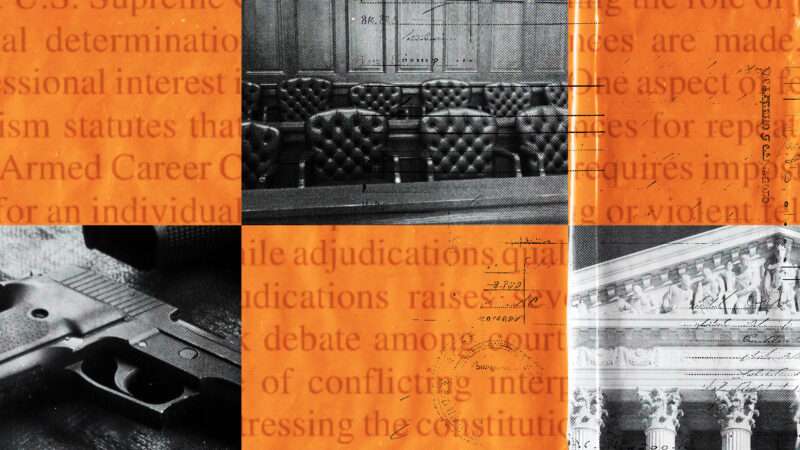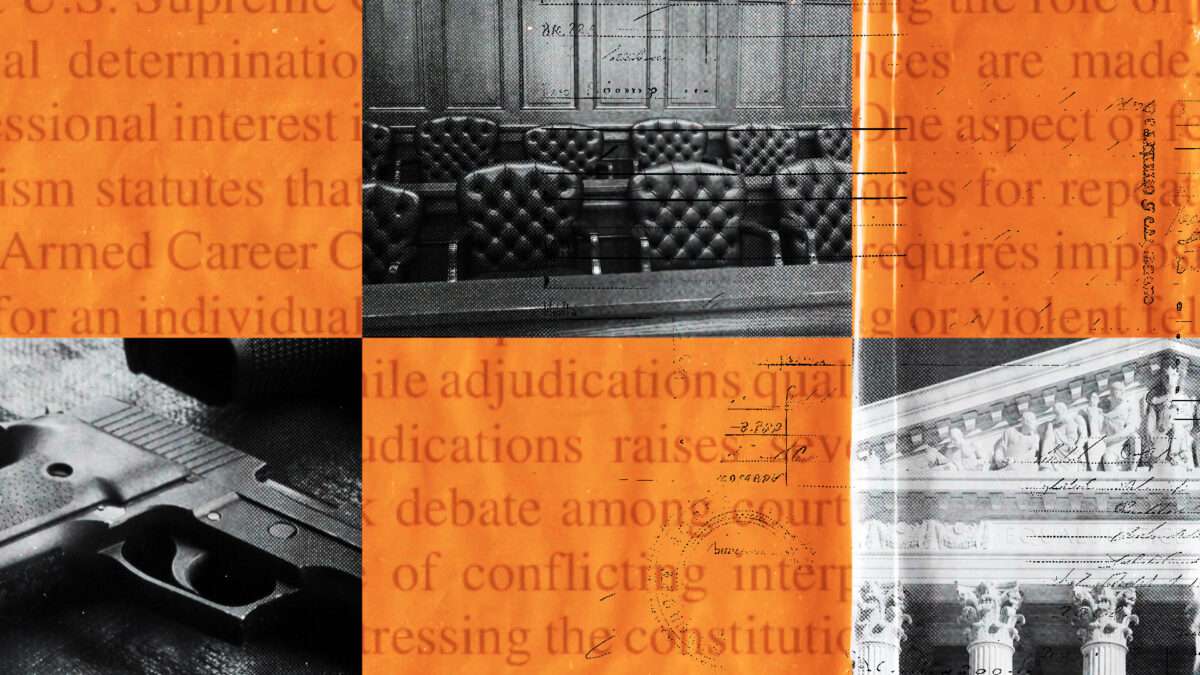Justice Alito Almost Messed Up The Internet; Then He Threw A Temper Tantrum
It turns out the internet was one Sam Alito petulant tantrum away from being a total disaster. In two key First Amendment cases, Alito was given the majority opinion to write. And, in both of them, his insistence on obliterating the old boundaries of the First Amendment caused other Justices to switch sides – and Alito to act like a spoiled brat.
This year, the Supreme Court session ran later than usual. Usually, they finish up by the end of June, but this year it extended the term over to July 1st. There were, obviously, a bunch of “big” decisions (Presidential immunity! Chevron deference!) that were held to the very end, including the two big internet cases: the NetChoice cases and the Murthy case.
As people awaited the decisions, there was a fair bit of SCOTUSology as court experts (and non-experts) speculated based on the number of decisions written by each Justice (and which months the cases were heard in) as to which Justice would have the majority decisions in remaining cases. I heard from quite a few such experts who expected that Alito would have the majority decision in the NetChoice cases, given that the other Justices all seemed to have majority opinions from February cases, and Alito’s name seemed to be missing.
Some people were surprised because in basically all of the internet cases oral arguments, Alito seemed quite out of step with the rest of the Court (and reality). When the decision finally came out, saying that the lower courts didn’t do the proper analysis for a “facial challenge,” it sent the cases back to the lower courts for a redo. But the majority opinion included some very important commentary about how the First Amendment still applies to social media editorial discretion. The overall ruling was technically a unanimous decision, but some noted that Justice Alito’s “concurrence” read like it had been written to be the majority opinion. It delves deeper into the facts of the case than a concurrence normally would (the majority opinion normally handles that).
Oh, and one other weird thing: in that final week of June, people were confused by Justice Alito not showing up to a couple of decision days, and his absence was never explained. Until now.
CNN now has quite an incredible insider’s tale of how Justice Alito had, in fact, been given the job of writing the majority opinion in the NetChoice cases, but lost it because he tried to push the decision too far into saying that states could regulate content moderation.
Alito, while receptive to the 5th Circuit’s opinion minimizing the companies’ speech interests, emphasized the incompleteness of the record and the need to remand the cases. Joining him were fellow conservatives Clarence Thomas and Neil Gorsuch and, to some extent, Barrett and Jackson.
On the other side was Kagan, leaning toward the 11th Circuit’s approach. She wanted to clarify the First Amendment implications when states try to control how platforms filter messages and videos posted by their users. She was generally joined by Chief Justice John Roberts and Justices Sonia Sotomayor and Brett Kavanaugh.
Alito began writing the court’s opinion for the dominant five-member bloc, and Kagan for the remaining four.
It’s also interesting that Justice Jackson was siding with Alito. During oral arguments, Justice Jackson asked some… odd questions, leading some to worry about how she might come down. The CNN report suggests those fears were legitimate.
Either way, Alito pushed his views too far and caused both Barrett and Jackson to bail out.
But when Alito sent his draft opinion around to colleagues several weeks later, his majority began to crumble. He questioned whether any of the platforms’ content-moderation could be considered “expressive” activity under the First Amendment.
Barrett, a crucial vote as the case played out, believed some choices regarding content indeed reflected editorial judgments protected by the First Amendment. She became persuaded by Kagan, but she also wanted to draw lines between the varying types of algorithms platforms use.
“A function qualifies for First Amendment protection only if it is inherently expressive,” Barrett wrote in a concurring statement, asserting that if platform employees create an algorithm that identifies and deletes information, the First Amendment protects that exercise of editorial judgment. That might not be the situation, Barrett said, for algorithms that automatically present content aimed at users’ preferences.
Kagan added a footnote to her majority opinion buttressing that point and reinforcing Barrett’s view. Kagan wrote that the court was not dealing “with feeds whose algorithms respond solely to how users act online – giving them the content they appear to want, without any regard to independent content standards.”
Barrett’s concerns have been worrying to some, as it suggests that algorithmic recommendations may not be protected by the First Amendment. This would upset a bunch of what people thought was settled law regarding things like search engine recommendations. However, the hope is that if such a case comes before the Court (which it almost certainly will…), that a fuller briefing on the record would clarify that algorithmic recommendations are still speech.
As we noted, Alito’s concurrence reads pretty petulant. It declares the majority’s “First Amendment applies to social media” explanation as “nonbinding dicta.” CNN details that this was him being angry that he lost the majority on that case.
But the key reason he lost control over the decision seems to be that he, unlike the eventual majority, would have sided a lot more with the Fifth Circuit’s ruling, which upended a century’s worth of First Amendment law.
Alito had the backing of only two justices in the end, Thomas and Gorsuch. He expressed sympathy for state efforts to restrict what, in an earlier phase of the Texas case Alito called “the power of dominant social media corporations to shape public discussion of the important issues of the day.”
In his separate July 1 opinion for a minority, Alito pointed up why states might want to regulate how platforms filter content: “Deleting the account of an elected official or candidate for public office may seriously impair that individual’s efforts to reach constituents or voters, as well as the ability of voters to make a fully informed electoral choice. And what platforms call ‘content moderation’ of the news or user comments on public affairs can have a substantial effect on popular views.”
Like Oldham, Alito took jabs at the “sophisticated counsel” who challenged the state regulations.
The same article notes that Alito also lost the majority on another “Fifth Circuit misunderstands the First Amendment” case. The one involving Sylvia Gonzalez, who was retaliated against by the mayor for her efforts to shake up the local government. The Fifth Circuit originally said this was totally fine. Eventually, the Supreme Court sent the case back to the Fifth Circuit to try again.
But again, Alito tried to go too far:
When the justices voted on the case in March, the majority agreed that the 5th Circuit erred in the standard it used. Alito was assigned the opinion.
But as he began writing, he went further than the other justices in his review of Gonzalez’s case. Alito and his colleagues realized he couldn’t “hold five,” as the expression goes, for a majority.
A new majority agreed to dispatch the case with a limited rationale in unsigned opinion. Rejecting the 5th Circuit’s reasoning, the Supreme Court said the 5th Circuit had applied an “overly cramped view” of the court’s precedent for when people may sue for First Amendment retaliation claims. The high court noted that Gonzalez could not show evidence of whether officers handled similar situations differently because her situation, involving the alleged removal of a document, was exceedingly rare.
Alito also wrote a concurrence for that case, but here he went on a long rant basically explaining why even if the Fifth Circuit used the wrong standard, there were lots of reasons why Gonzalez should have lost her case. Basically, if he had written the majority opinion, all of this would have qualified as “nonbinding dicta” under Alito’s own standard. Now, at least, it’s just a concurrence.
But, apparently, because Alito was ticked off that he couldn’t “hold five” in either of these cases, it caused him to take his ball and go home (i.e., just not show up at the Court on decision days):
On June 20, when the chief justice announced the opinion in Gonzalez v. Trevino, Alito’s chair at the bench was empty. Alito missed that day, as a total four opinions were handed down, and the next, June 21, when the justices released five other opinions.
Justices sometimes skip one of these final days of the annual session, but usually there’s an obvious reason for the absence, such as travel to a previously scheduled speech. Court officials declined to provide any explanation.
Alito returned for the final four announcement days of the term, yet sometimes appeared preoccupied. On the last day, when Kagan announced the decision in the NetChoice case, Alito was reading through material he had brought along to the bench.
Poor baby.
In both cases, Alito’s view of the First Amendment seems disconnected from reality and history. And, in both cases, he still had a chance to write the majority opinion (sending both cases down on what is, effectively, technicalities). But, in both cases, he was unable to write a reasonable opinion, causing his colleagues on the bench to jump ship to more reasonable rulings.
And, in response, he decided to just sulk like a teenager who didn’t get his way. In the end, that left us with a much better, more First Amendment supportive majority decision (in both cases). But it’s truly incredible how close we came to bad decisions in each, and how both of those flipped due to Alito’s insistence on pushing his terrible, unsupported ideas about free speech.









